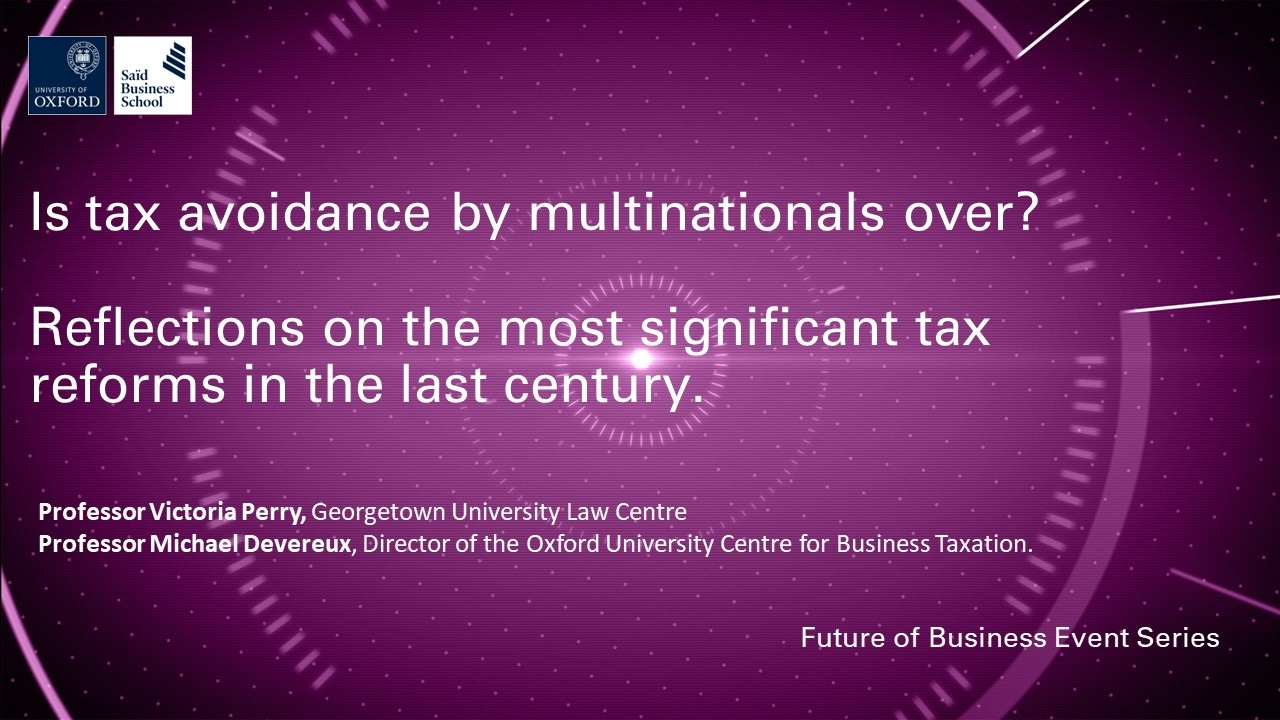About the event
The OECD’s Global Minimum Tax aims to make all companies pay at least 15% of their profits in corporation tax.
There has been widespread concern – indeed, anger – over the way in which large multinational companies have used increasing digitisation and the differences between countries’ tax regimes to pay very low overall rates of corporation tax.
It is not ‘fair’ – to smaller domestic companies that are unable to shift any part of their profits overseas; to poorer countries that rely on corporation tax more than richer countries do; and indeed to all countries that need revenues from taxation to fund their own public spending.
At the end of 2021, the OECD (Organisation for Economic Cooperation and Development) released model rules for a new Global Minimum Tax (also known as Pillar 2) that aim to address this problem. It sounds like a plan to end corporation tax avoidance for good. But will it?
In this Future of Business event, Professor Victoria Perry, Georgetown University Law Centre, and Michael Devereux, Director of the Oxford University Centre for Business Taxation at Saïd Business School, discuss how multinational companies have historically managed to minimise their corporation tax payments; what the Pillar 2 framework actually means; and how it can be accomplished.
Their conversation covers topics including:
- Why countries set very low – or even zero – corporation tax rates when they are struggling to collect enough tax to fund their own public spending
- How multinational companies can use ‘tax havens’ and tax treaties to pay as little as 3 per cent on a global basis
- Why a 15% global minimum tax might work and who it will benefit most
- The challenges of implementing the new framework and implications for companies, policymakers, academics, and professional advisors
You can learn more about global tax reform and Professor Devereux's research on international taxation on Oxford Answers.

